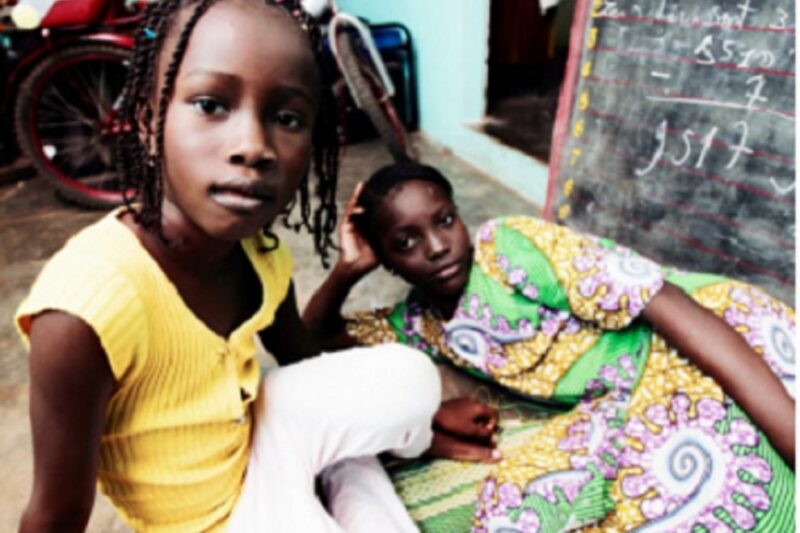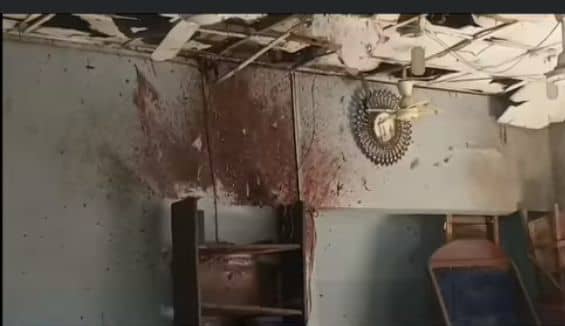high rate of school dropouts
Negligent parents, the lack of sanitation, hunger and insecurity are just some of the reasons so many children in Maiduguri drop out of school.
RNI reporter Falmata Tijjani Lawan spoke to Mallam Abdullahi Ahmed, the headmaster of the Sanda Kyarimi Primary School in Maiduguri, who said that often the reason for children dropping out of school was because of their parents’ negligence.
During a meeting with the school management and parents, he said, it became clear that some parents were to blame.
Many children arrived at school late because their parents sent them on an errand just as they were getting ready for school and others did not seem to bother about whether their children went to school or not.
The long distance between homes and schools was also a factor in the dropout rate.
He said many times hunger played a major role. Children would leave the school to try to get food and did not return even though the classes had not finished for the day.
“Sometimes, especially when their parents have not packed something for the kids to eat, at break time they leave the school to buy or scrounge something to eat. Often they roam about the streets learning bad habits which results in them dropping out of school,” Ahmed said.
Some parents were indigent and sent their children to school with empty bellies.
“Children can’t learn when they are hungry,” Ahmed said.
Sometimes the school’s management also had problems that needed to be addressed.
“There are not enough toilets in many schools, resulting in pupils having to queue. Sometimes the line is so long that the pupils go back home to use their own toilets and often they do not return.”
Ahmed said that once children dropped out of school they seldom returned. They often ended up being lured by insurgents, some stole items, others begged on street corners. Some joined gangs and became “bandits”. Their future looked bleak because they were unlikely to find a job without education.
Ya Hadija, a mother, blamed negligent parents for the high number of school dropouts.
“Some parents do not take the education of their kids seriously enough. They don’t follow up on their children’s progress and don’t check on their assignments. They take no interest in their children’s education.”
She said when fathers were out looking for food for the family, some mothers did not ensure that their children would even go to school.
“Most of the time you see children in school uniforms playing football on streets and missing classes, which obviously affects their education,” Hadija said.
Because of years of conflict – mainly attacks by extremists from the Islamic State West Africa Province (ISWAP) and the Jamā’at Ahl as-Sunnah lid-Da’wah wa’l-Jihād (JAS), more commonly referred to as Boko Haram – millions had to flee their homes and ended up living in internally displaced persons’camps or host communities.
Maiduguri is home to thousands of these people and this has resulted in many more children entering the city’s school system.
The United Nations Childrens Fund (UNICEF) said least one million children were likely stay away from school because of the threat of violence, following a series of mass kidnappings and attacks targeting pupils in 2021 alone.
Many families and communities remained fearful of sending their children to school because of the insurgency.
So far this year, UNICEF said, there had been 20 attacks on schools, leading to the abduction of 1,436 children, 16 deaths and more than 200 children were missing.
Peter Hawkins, the UNICEF representative in Nigeria, called for an end to insecurity as it increased the risk of children never stepping into a classroom again.
Most of the researches on the causes of children dropping out of schools were put down to the poor educational background of parents, the inability of parents to pay their children school fees, failure in school examinations, the very poor state of facilities in schools, broken homes and insecurity caused by the insurgency.
AISHA SD JAMAL








